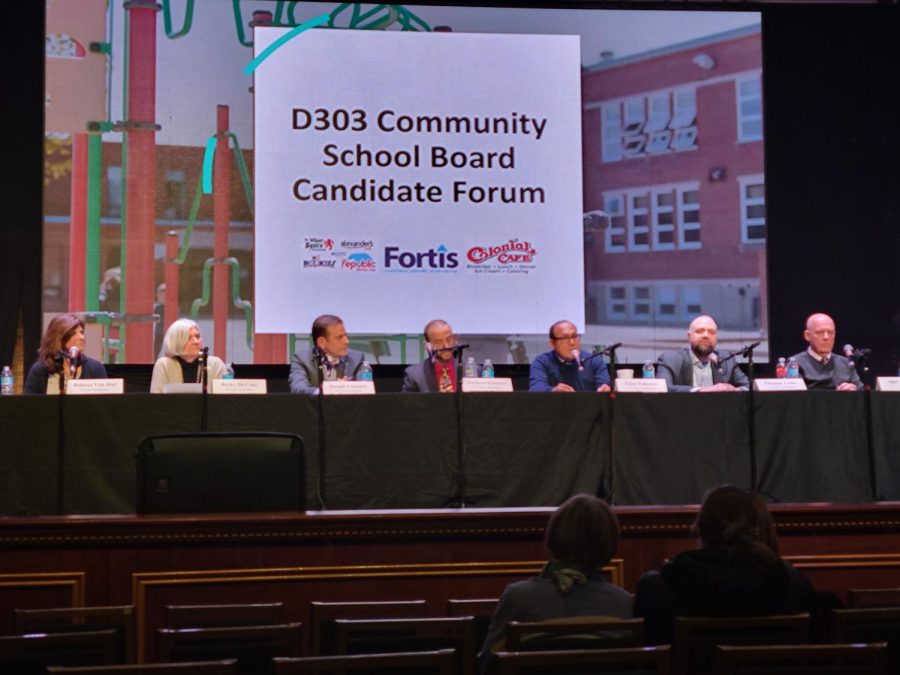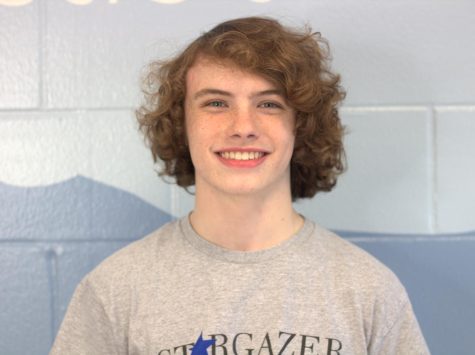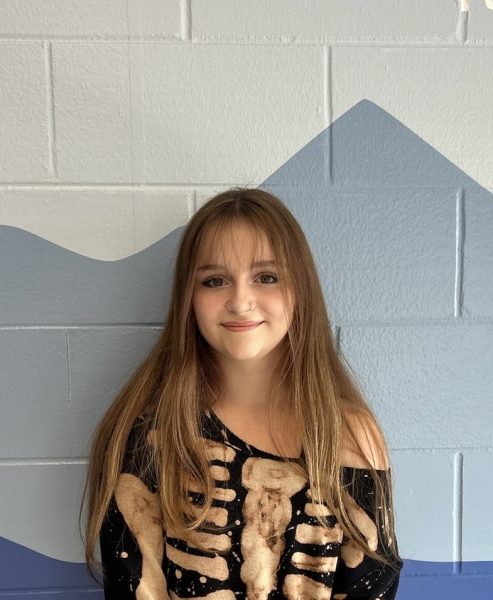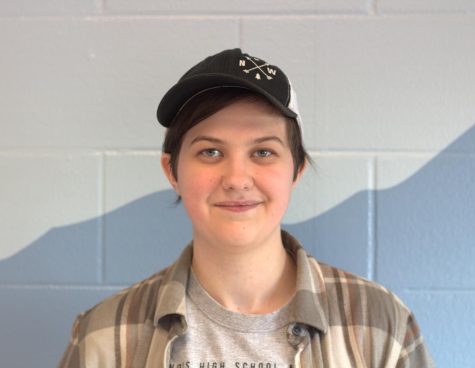Meet the 2023 School Board Candidates Running for District 303
Several of the candidates participate in a forum at the Arcada Theatre on March 14.
March 24, 2023
On April 4, District 303 community members will vote for candidates to serve on the school board. There are three four-year terms and one two-year term up for vote at the election. Matthew Kuschert, Joe Lackner and Becky McCabe are seeking reelection to four-year terms and new candidates Barbara Diepenbrock, Lauren Duddles, Elias Palacios, Alexandra Teipel and Lorie Van Hiel are also competing for these seats. Mike Backer, Thomas Lentz and Richard Rivard are running for the two-year term.
Mike Backer
Why did you decide to run for school board?
“I’ve been a long time resident of St. Charles. My family and I have lived here for 27 years now. And all six of my kids are either going through or have gone through school in St. Charles. As a matter of fact, four of them have gone through K-12 and already graduated. I’ve got two more currently in first and third grade. I’m a parent. I’m a former educator. As a matter of fact, I was in education for 40 years, and 14 of those years were in St. Charles. I was a principal at Davis Elementary School. I was at North High School for a while as an assistant principal. Then I finished my career at East High School. I’m an educator, and I’m also a community member and taxpayer. I’m very active in my community. I’ve been a part of a homeowner’s association. I’ve been a part of the St. Charles Youth Commission and the Arts Council. So, I’ve been very active in our community as well. I’ve done a lot of things, as a parent and as an educator, and community member. I just decided it was time for me to contribute to and give back to our school system because of all the positive things that it’s done for my family, myself and our community.”
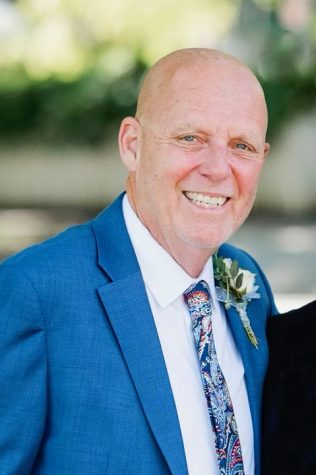
What do you believe is the most important issue in this school board election?
“There are a few issues out there that are very important. Our facilities need to have a real close look at in terms of our enrollment, our equity issues, in terms of space and classrooms, for elementary, middle and high school. All of those things need to be examined very closely, a very close study, a very honest evaluation, and then a determination [of] what we would do to support enhancements or improvements to do the best we can with our facility. Then, of course, our teachers. There’s a national shortage of teachers. So, we’ve got to do what we can to support our teachers as well as give them the best possible mentorship and professional development so they’re willing to stay in our district and they feel good about working with our students. The number one issue is our students, obviously. Coming out of the pandemic, we want to make sure that we’re doing everything we can to support our students across the board. In all areas, we want to give them the most challenging curriculum so that they can always do the best they can, be the best they can be academically, but we also want to give them a well-rounded experience. We want to continue to offer excellent sports, excellent music programs, excellent activities that they can participate in, as well. We’ve got to be able to give them supports, counseling and social work, mental health supports, you know, again, coming out of the pandemic, a number of our students have reported that they have some concerns about either themselves or relationships they have and so on. We need to do whatever we can to support our our students in a very multifaceted manner in terms of their academics, in terms of social needs, their emotional needs, and providing for them the most well-rounded education that we possibly can.”
What do you think the role of the school board in the district should be?
“The school board really has a leadership role. They are the ones that set policy for the district. They are the ones that are entrusted with the budget. So, they provide the resources for all the various activities and programs that I just talked about. They are one ones that make a determination in terms of the final say on leadership, selecting our superintendent, bringing in the correct curriculum that’s going to support our students getting the best possible academic opportunities that we have. So, the school board plays a very, very critical role in any school community.That’s why I feel that bringing my experience, having been a parent for a long time–six kids, as I mentioned before–having been an educator for a long time, and part of that time, knowing how things work in St. Charles, and also a community member who does pay taxes, I think the role of the school board must be to set that leadership standard of excellence, and provide nothing less than excellence in the way we carry about our business. Once again, in terms of how we provide the resources in terms of what policies we establish, in terms of what we do to support our staff and most importantly, our students.”
Why should specifically students support you as a school board candidate?
“Well, you know, I really feel like I know you, I really do. And here’s why. It wasn’t that long ago, I retired in 2020. I’ve been a teacher, I’ve been a principal and I was a coach. I was a cross country coach. As a matter of fact, last year, I was a cross country coach at St. Charles North. And so I know the students, I’m aware of what your needs are, I’m aware of the kinds of things that you’re going through in your programs and activities. Also since I’ve retired, II’ve substitute taught a few times, I’ve been over at North High School, I’ve watched how I’ll things continue to operate there. And I’ve also volunteered in the class as well; I volunteered for my younger children at Davis School and Ferson Creek, where they’re currently students right now. I’m not one who’s looking at this from a distance and saying, “Oh, you know, it would be nice to know a little bit more about what the students are going through.” I know exactly the kinds of things that you’re going through, again, being a parent. My daughter, Kylie, just graduated in 2020,very recently, you know, and [I have] other kids who
are still in school, and so on. And so being aware of those needs, and then again, having been there myself, as a coach, as a teacher, and as an administrator, I feel like I’m very aware of the kinds of things that will support you, that will support the teachers, that will support the administrators and that team is unbeatable. If we get all those groups and now our school board working together, There’s nothing that can stop us from continuing and making the future as bright as possible.”
Barbara Diepenbrock
Why did you run for school board?
“It’s been a tumultuous two years, and so I was concerned about who would step up to do it. I was concerned that some folks would be fearful to do it, so I really wanted to throw my hat into the ring. Academics has always been very important to me. Growing up, I was a bit of a standalone kid, so it was the schools and the teachers that really made me feel like I could succeed and that I was seen. I wanted to be a part of that if I can, in any way, be a part of policy or a way to support the district and pay it forward. I wanted to be able to do that, especially with how much they’ve given my children when my kids came here. They were quite a bit behind, and the teachers that we’ve encountered and the district as a whole have really been amazing and supporting them and getting them to catch up and even exceed in some areas. So that’s really what made me want to just jump right in.”
What do you believe is the most important issue in this school board election?
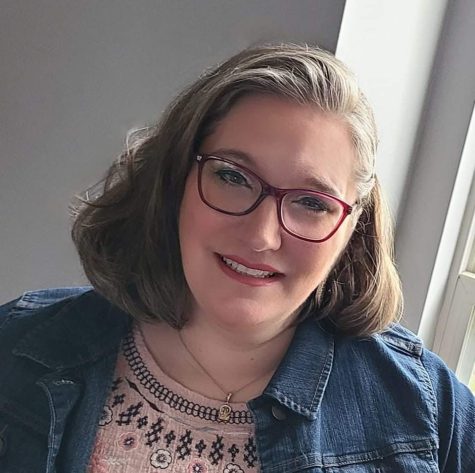
“It’s going to be facilities. I know that there’s a lot of important things such as diversity, equity and inclusion. But as far as policy and what is coming up here that the board will directly have an impact on, it would be the potential of redrawing district lines. It’s the potential of figuring out how we’re going to rework certain school spaces, and I’m also concerned about the current board with the way they stand and the way they can sometimes only be fiscally minded. I’m concerned that they won’t see the developmental and emotional benefits of specials and that things will be cut. I really want to be sure that there’s some empathy and emotional thought behind some of the decisions as well.”
What do you think the role of the school board in the district should be?
“The school board is a conduit. I think sometimes that’s been getting lost in the last couple of years. The board can follow the law; they don’t make the law. They make policy that’s district-related, but if the state makes decisions, the board’s job is to follow those mandates and those laws that can even be handed down by politicians that are high up. Ultimately, a board member is supposed to be an advocate for the students. When you’re an advocate for students by proxy, you should be listening to the teachers and the community at-large to see how you can marry all of those pieces of input you’re getting and make the best decisions when it comes to voting that you believe from the constituents you represent is the correct and most accurate vote. We really need to be good listeners as a board member, so pay attention to what the experts are telling you as well. Sometimes I see some board members that will sit there and think that they are experts at facilities. I’m definitely not an expert at facilities, but I am an expert researcher, and I am someone that loves understanding and learning and listening to people who do know more. I think that’s the ultimate role of a board member: to be a good listener and a conduit for everybody in the community, but especially students.”
Why should specifically students support you as a candidate?
“The students are the most important constituents; everything that the district decides with regards to policy, curriculum, all of it, first and foremost affects the students. What’s difficult is that so many of the students can’t vote, and I have found from conversations I’ve had with students, they’re so keenly aware of what’s going on, sometimes even more so than the adults in the district. They’re not often truly fully considered, or they sometimes may be intimidated to talk to adults because they don’t feel like they’ll be heard. Just the other day, I believe it was a student that spoke at citizen comments [during a school board meeting]. Unfortunately, I was watching it [over live]stream and the mic wasn’t working, but what I gathered is that it was about having an open campus. I found that so interesting because the board, in my opinion, didn’t hear that student. And when it came time for new business, they weren’t going to bring up the fact that some new business was just brought up if it hadn’t been for Kate Bell who said, ‘well, are we going to talk about how we’re going to deal with the new business.’ I loved that that happened, because that’s the kind of thing that has to be done, because [students] can’t vote but they definitely need to be heard, I would like to continue that.”
Lauren Duddles
Why did you run for school board?
“I had always thought about maybe running for office but not sure exactly what I wanted to run for. Then I heard that there was an election coming up, and I have a lot of issues I’m passionate about, but one in particular is mental health. So with everything kind of going on right now with studies that are coming out about mental health and teenagers, I just felt like the people that are on the board currently and people in our district are just not talking about it enough. So I decided that I wanted to use my voice and be an advocate for mental health in D303.”
What do you believe is the most important issue in this school board election?
“I would say the most important thing is going to be the overcrowded schools that we have. That’s probably going to be the first thing that the new board deals with after the election. We need to find some short-term solutions, hopefully for as soon as the next school year, and then some longer-term solutions, which might even be building new schools or something. So I think that’s the first thing that’s going to come up that the new board is going to have to deal with.”
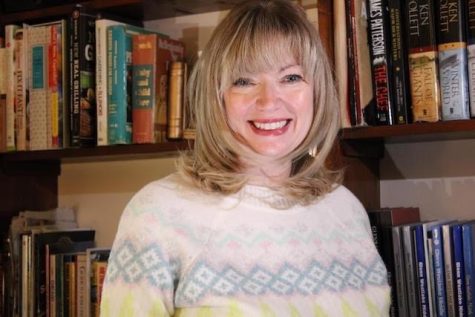
What do you believe the role of the school board in the district should be?
“I think that first and foremost, the school board sets the tone for everything. How do they feel about their relationships to the students in the district? What do they feel that students should be getting out of school every day? What is their relationship with the teachers? What is their relationship with the parents? The board can set that tone, so I think it should be that we respect teachers and we want to support our teachers, that we understand that our students have different needs and we want to be supportive and make sure that every student goes to school feeling comfortable in the classroom, feeling like they belong, and they’re accepted, that everyone has an equal environment to have learning occur.”
Why should specifically students support you as a candidate?
“Students should support me because I am a mom, I am a former high school teacher and I just feel like my finger is on the pulse of what students care about what they’re going through. Since I have been teaching, there were things that my eyes were open to that I wasn’t aware of before. I just feel like I’m really tuned in to 2023, the issues that our students have and how to best support them.”
Matthew Kuschert
Why did you run for school board?
“I was appointed back in December of 2021, so we’ve done a great deal of work in these last 15 or 16 months. To be honest, I wasn’t even entirely sure that I was going to run, and we’re going through that process [where]you have to declare that you intend to run and get a certain amount of signatures in order to put yourself on the ballot. But as I really reflected upon all the hard work that we had put in, which also includes hiring a new superintendent, and the work that we’ve done on the various committees that I serve on, I just felt like it made sense for me to continue with that work, and continue in the positive trajectory that I firmly believe that this district is headed.”
What is the most important issue in this school board election?
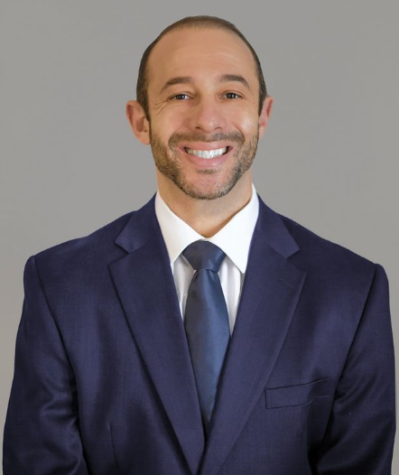
“There are a multitude of very, very important issues, but at the end of the day, the primary responsibility of a school district is to churn out wonderful students. So I would have to say one, although there’s a number of others that would be right behind it, would be the academic excellence and the academic achievement. It’s something that I’ve been very consistent upon, whether it be the discussions that I have with Dr. Gordon or his cabinet or the rest of the board. I think we’re all unified on the fact that academic excellence opens the doors for everything, whether students elect to move on to college or to careers or into the trades or into the military, whatever they elect to do. A strong educational foundation is going to be paramount to their success. So the emphasis that I placed typically is going to be achievement for all ages, all groups, and ultimately turning out wonderful graduates within the district.”
What should the role of the school board in the district be?
“I know what the role of the school board is, and that’s governance. So high-level governance of the trajectory of the business. At the end of the day, we have one employee, and that’s the superintendent, and then it’s incumbent upon the superintendent to run the district. When I’m speaking with folks, I’ll often say that the superintendent is like a CEO, and we’re the board of the company, so to speak. So our role is governance and to hold the superintendent accountable to the goals that we collectively agreed to, at the end of the day; whether it be the committees that we serve on (safety policy, learning and teaching business services), naturally, our direct input is necessary there. So high-level governance is essentially the number one role and then ultimately, we need to deliberate about very important decisions within the district.”
Why should specifically students support you as a candidate?
“I can personally reflect upon when I was that student. I was a student-athlete, I took my academics very seriously, I went on to college and became a college wrestler and a high-achieving academic student and I need that experience. Furthermore, I was actually a counselor when I was assistant director of admission [at Elmhurst University], I was [an admissions] counselor for the St. Charles School District, many many years ago before this was ever even a thought. And I went to Wredling Middle School and gave presentations about how to get ready for high school; I went to St. Charles East, St. Charles North as they were in my territory as an assistant director of admission. I moved to this community because of the schools and because of the beautiful community. I’m living it right there with each and every student that is a part of this wonderful community. So at the end of the day, I’m a coach. I’m a business owner; I actually personally train and work with a number of different students. My business is in Naperville, so not a lot of St. Charles residents are coming down to my business, but I’ve been an advocate for students much of my life. From that perspective, I would say that students have an advocate. I’m gonna go to bat for them for the best possible future I can possibly help to cultivate for them.”
Joe Lackner
Why did you run for school board?
“I decided to run because my family has always believed and I personally believe that education is the key for anybody to aspire to whatever it is that they want to accomplish in life. When you think about the amount of money and time and energy that the community puts into D303, that is the gateway investment that remains in folks like yourself and my kids who are in the district, in their ability to pick their future. When I saw what happened with COVID, and how difficult the isolation and remote learning was on my kids, I started paying attention to how decisions were being made. That really inspired me to say ‘let me throw my hat in the room and see if I can offer a little bit of an analytical-informed perspective to decision-making.’”
What do you believe is the most important issue in this school board election?
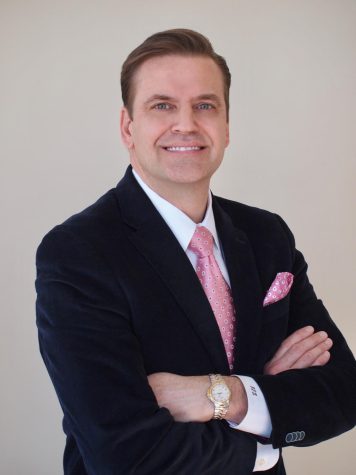
“I think the most important issue is the concept of academic excellence and creating the focus of D303 around that constant academic excellence. If you look at the aggregate scores and performance across our district, I don’t just mean the test scores in the high schools and SAT scores, but if you look across the student achievement report and the adoption of new goals from K through 12, you can see that we have a lot of ground to cover and that the performance of the schools in aggregate is degraded from where it has been in the past, and the challenge I think we face is that we only get students one time at every grade. So we have to do well all the time. I think it’s critically important for us to keep the pressure on the administration. We don’t do the in face between teachers and students, but we do have the responsibility of seeing teachers have all the resources they need to help students succeed every time. So when we look at that aggregate set of numbers, we have to say, are we allocating resources right to ensure that students have success? Because the only thing they have when they leave is their experience, their knowledge and how much that sets them up to be in a position to pick their future.”
What do you believe the role of the school board in the district should be?
“To approve the budget and monitor the spending of the district and to approve curriculum. And that second part is the most important role the board plays. What is it that we teach children throughout their journey from pre-K through 12? And do we have the right mix of things for the kinds of students that we have here in D303? To me, that’s the most critical role that requires immediate partnership between the board and the administration. We hired a new superintendent in July, and as he’s assembled his team,we have a much more proactive conversation between the current board and administration on how to deliver the board’s goal of providing a positive, strong, high fidelity curriculum up and down that stack from 12 down to pre-K.”
Why should specifically students support you as a candidate?
“I think the students have to recognize that, as a parent of four students, one who is graduated from the district and three who are in that district, I understand the pressures and challenges that students face, particularly as they move through middle school into high school, about the school experience and how that impacts their day to day life. The single biggest commitment that every individual young person makes is at school, and it has to be a really positive experience. The students should recognize that I have their best interests and their long term best interest [in mind] every time I sit at the board.”
Thomas Lentz
Why did you decide to run for school board?
“I’ve been involved with the advisory committee for the school board since my wife and I moved here in 2019. Because of that involvement, I’ve participated in the facility master planning, all of the things that the citizens advisory committee have been working on. A number of neighbors and friends encouraged me to run and put my perspective in the race, and I thought it would be a good continuation of my service to the community.”
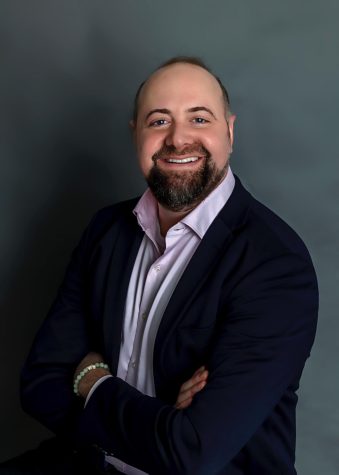
What do you believe is the most important issue in this school board election?
“I think there’s a couple of issues. First, obviously, is improving our academics and getting the right resources in place to ensure that we keep a good path for the students. Second, I think, is challenges we’ve had with our facilities and the redistricting that’s likely to happen here. I want to make sure that the community gets involved in that, set some guidelines around that.”
What do you think the role of the school board in the district should be?
“The school board has one employee which is the superintendent, and I think that in addition to holding the superintendent and his administration accountable for progress and good academics, I think the school board has an important role to play in making sure that we have the right curriculum, evaluating our facilities and putting a good plan in place that serves our community.”
Why should specifically students support you as a school board candidate?
“I think that I’m the right candidate for this role because I’ve spent a lot of time getting to know a lot of the immediate challenges and as a parent in the district and somebody whose very interested in good outcomes for all student, I think that I have the best outcomes in mind and want to have the best opportunities for all students.”
Becky McCabe
Why did you run for school board?
“I initially ran because I had retired and wanted to give back to kind of a public service because I have been in education my entire career. So when there was an opening on the board in 2019, I ran. Then I wasn’t sure if I was going to run for reelection, but we have a new superintendent that we just hired and I really want to support his work. I want to continue to be part of the D303 school district, try to make a difference, representing the community and supporting the work that goes on in the district. So I don’t have an agenda. I don’t have any ‘I’m going to change this, this and this.’ I want us to be the best we can be.”
What do you believe is the most important issue in this school board election?
“For me the number one thing is making sure that our kids are achieving the highest level that they can in their academics and in the direction that they want to pursue, so I want to be sure that we’re giving them the opportunities and the options to find their pathway for after they graduate from high school. We have groups of kids who are not performing very well, and I want to be sure that we look into why that’s happening and what we can do to make sure that they are also successful and how we can improve our instruction so all kids will achieve high levels [and] find success as they go through our school system. So for me, that’s the number one. There are other issues that we have to look at. We have to look at facilities. We have a lot of work we need to do to plan out what kinds of things we want for our schools, what we need for our schools and make short-term and long-term plans for what we need to do for our buildings. So those are probably the two that come to mind first, and then there are the emotional and social welfare of our kids and our staff, to be sure that they’re getting the support that they need so they can be engaged and be accessible to learning. So there are lots of little ones that all cannot be ignored, but academic achievement and closing the gaps and facilities are the ones I talk about as a candidate.”
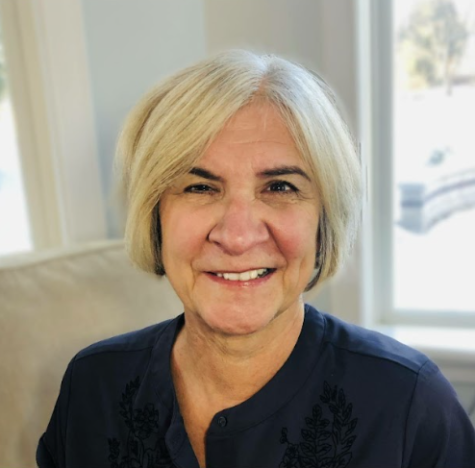
What do you think the role of the school board in the district should be?
“The role is really defined in a number of ways. We are the governing body, which is very different from being an administrator or teacher. We set policy and we make a lot of decisions about finances, what we are going to spend. Our only person we employ is the superintendent, and the superintendent designates people to employ others. We just completed hiring Dr. Gordon; to me that has been our best decision we’ve made and our most impactful one for the future of the district. Governing is a very different kind of experience. I was a teacher, I was a principal, I worked at the district office as assistant superintendent, and those are very different roles than being on a board and meeting to give guidance and governance to the district. So there are a lot of rules going around. My experience has been that it takes a while to learn all the pieces of being on the board. So you can’t come on the board and get to [say] ‘I’m going to do this, I’m going to change this, we’re going to make this difference.’ You have a lot of other things to figure on before those kinds of decisions can be made.”
Why should specifically students support you as a candidate?
“Well, I was a teacher. I taught kindergarten, first and second grade, and I have always been connected to kids. Kids are the reason I was in education and do what I do. When I became a principal, building relationships with my kids in my high school and the families was really important. Once you get to the district office, you don’t have as many connections with kids as you do when you’re working in a building, but the connections I’ve made with kids in D303 have been really important to me. After I retired, they asked me to come back and work in Haines for a short period of time. When Haines and Thompson merged, I came in with another retired administrator. I had a blast with middle schoolers. Basically, I was a disciplinarian, but we had such a good relationship and good time. The eighth graders that I worked closely with graduated last year and they still remembered me and that made me really feel honored. I only knew them for like, three months, but the work we did together and conversations and the relationships we built were really important to me, and it made me feel really good. That was important to them as well. I was the co-chair for the Citizens Advisory Committee, and we really wanted student voice on that. I think we’ve got it better than we did before. Now the superintendent has a committee of students who he meets with. Being on the board I’ve had connections with students who have come to the board to talk about the issues that they felt that were really important. So those are kids I’ve met along the way. I have a grandson who’s a sophomore at East and a granddaughter who’s in Wredling. The relationships I’ve made because I know them and because of the things they’re interested in are very important. I think the reason I would ask students to vote is [that] taking student voice and listening is really important to me. I also think I come with a lot of knowledge about how schools and classrooms are organized and run. Kids are always first whenever I make a decision, I want to know how that impacts kids and students. I really hope that we’re doing the right thing because the future is unpredictable. Our students need to feel that when they leave D303, they had lots of opportunities. That would be something that I’d like to hear more from students: how important is college, how important is technology, how important is music, how important are all those things? What do you need to be successful? So, I hope that students would see me as an ally and that whoever they are, whoever they want to be, wherever they’re going they would see that I have their best. I take [student’s futures] very seriously, and I’m always looking to how we at D303 support a lot of opportunities.”
Elias Palacios
Why did you run for school board?
“I have a few reasons, but the main reason is I have two children. One is going to grammar school, and the other is in middle school. I spend a lot of time with them in different activities. Then I said to myself, if I do this for my children, I can do [this] for others as well. Also, I believe in public education, which is important in getting better to excellent. Those are my main reasons for running for the school board.”
What do you believe is the most important issue in this school board election?
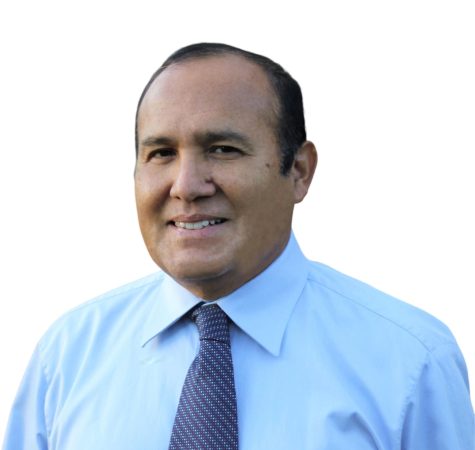
“I have three. The reason being is when I interviewed 150 people to finish my campaign issues or concerns that I needed to run, they were getting into safety, good education (but I said good to excellent education), [and] the other one is keeping taxes low. The main thing we wanted to pursue is that children or students, when they leave the high school, need to be higher achievers, meaning academically performing very well. It’s not like a miracle, but at least getting from good to excellent. And when they leave their high school, they will have not only academically performed very well, they will do all the main classes, and when they apply they can decide: they can go to Harvard or they can go to a community college. Not because they [had] poor performance, but because they chose to.”
What do you think the role of the school board in the district should be?
“There’s two things: one is regarding the policy procedures in the law, [which] entrust the board to do a few main things. To hire and fire the superintendent, evaluate the superintendent, keep him accountable for achieving or not achieving goals for the whole district and also to approve or not approve the curriculum, which is very important because if [the board] doesn’t choose [the curriculum] very well, it will be not going further if they cannot dedicate attention to classes which are not pertaining to [student’s] success.”
Why should specifically students support you as a candidate?
“I compare it to real estate: location, location, location, in this case, the priority is student, student, student. The reason being is because I want the student to succeed in all the levels and they will be successful when they pursue their higher education. I [have] experience dealing with people because I work with them. My background is in psychology. I was working in forensics with major mental illness, major crimes, substance use disorders, developmental disabilities, personality disorders and others, meaning [I have] skills that I can bring when I talk or negotiate anything with the board members.”
Richard Rivard
Why did you decide to run for school board?
“I’ve always lived in the area. I went to school from second grade through high school in St. Charles. I’ve got small kids who are also in the school system. They’re in public school. And I have a daughter who’s in college. So, yeah, I’ve always been interested in what’s going on at the school, and I’m wanting to make sure that the school remains a safe and open place for all students. And there’s been some recent shifts in school boards nationwide, and I wanted to push back against some of those shifts.”
What do you believe is the most important issue in the school board election?
“So I’m sure everyone’s gonna say, like facilities or taxes or something. And like the margins, they’re super thin between all of us. But I think that the biggest and most important issue is going to be mental health and that sense of belonging. I think everyone’s under a lot of stress and anxiety; we went through a national trauma with COVID. And since then, anxiety rates are up, mental health issues are a problem. So I would like to invest in the mental health aspect and try to develop a curriculum that allows the development of the whole student, so not just, like, math, reading and writing; you can’t math harder, you can’t read harder. But we can work on developing skills and tools for each individual student that allows them to emotionally regulate and build that sense of belonging. So everyone can see themselves in the community. And it’s reflected in the curriculum and in the schools.”
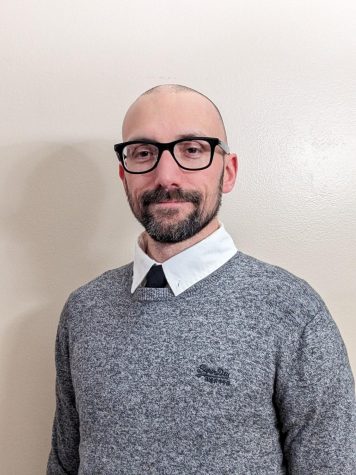
And what do you think the role of the school board in the district should be?
“They have to serve as a conduit, right? So they listen, they get feedback from the teachers, from the students, from the parents. And they have to kind of process that stuff. I was talking to somebody about this. And like, when I was growing up, there were little signs people put in their windows that was a helping hand house. And so, if you were walking home, because I’m 41, we used to walk home by yourself, if there was trouble or strangers or a thunderstorm, you’d be able to knock on that door and go in there because they were a safe place. So I want people to see me on the board as a safe place. Somewhere they can come and voice their concerns, voice their approvals. It’s not just concerns that people have; people are proud of the district as well. So I don’t necessarily want to hear what you don’t want to see, but what do you want to see? What are you proud of? So I want to be that person on the board that is there to represent everybody, right? I’m younger than the other board members, I come from a different economic background from the other board members, I have a different life experience. And I sat in the desks. So I want to use all that experience to listen, and I think that’s what the board does is listen to and and help the community and make sure that the curriculum reflects the community’s diversity.”
Why should specifically students support you as a school board candidate?
“Well, I teach at Elmhurst University, so I’m around student-age students all the time, I guess, would be a weird way to say that. But I’m relatable. I can take difficult, large, weird, obtuse concepts. And I can chop it up in a way that is relatable to all people, including students, but mostly, I’m the one candidate that’s running, at least in the two-year races, that really is to focus on that sense of belonging and that sense of safety. And I really want to foster that. And I want to make sure that all students of all backgrounds and the LGBTQ community feel safe and welcome. And more than that belong in this community. And I want them to know, as well as all other students that they are safe in these hallways, and I will work to make sure that they are heard because the whole point, the whole point of running for school board is the students, right? Everyone’s talking about buildings, they’re talking about teachers. We’re talking about parents. It’s you guys, it’s the students in the schools, and I’ve been in those schools. And so I understand. Well, North was a junior high when I was in school because I’m 1,000 years old, but yeah, it’s that developing and that sense of belonging, knowing that I will be an advocate for all students on the board.”
Lorie Van Hiel
Why did you run for school board?
“I chose to run for school board because as a mother of three and a grandmother of two and someone who’s been an educator in the district, as someone who was eighth in line of 12 children, a family is very important to me. And the values that surround our families are very important. I think this district shares in part a lot of those same core values, so making sure that parents are having a final say in terms of what their children and students are exposed to at schools, from reading material to being very aware of what the curriculum is being presented to students: I think that’s the right of a parent. I don’t believe that that transparency is there at the moment. I also don’t see that transparency when it comes to curriculum. Now I know they’ve stated that that is on the website, but I don’t see it in any great detail. What I’m not seeing is the accountability of the curriculum that’s just changed from just a few years ago. So if we are going out there and getting a proven-results curriculum, we shouldn’t have to be changing it every couple of years, right? That’s a lack of fiscal responsibility to the taxpayer. And we’re not getting to teaching the core subjects of our students.”
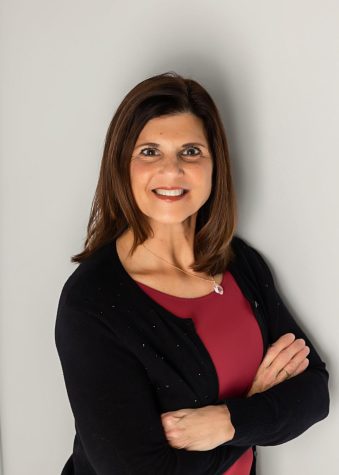
What do you believe is the most important issue in this school board election?
“The most important issue in my opinion is curriculum. We need to have a result-proven curriculum that is going to have our students proficient who are not currently proficient from the scores I have seen. I have resources at my disposal that come from higher education sources that would allow us to bring in results-proven curriculum that could be adopted. Everything from phonetics, which gets us back to basic reading and writing, since many of our students, especially those coming back from COVID have not been able to approach proficiency or accomplish proficiency. Everything from phonetics to a math program that I would like to have considered for presenting.”
What do you believe the role of the school board in the district should be?
“I believe that we’re stewards of the taxpayer. So by that, I mean we need to be putting our best foot forward creating policy and curriculum that not only attains excellence and at the very least, helps our students achieve proficiency, but I also think we’re responsible for the safety of those same students, number two. Number three, I think we have to be as fiscally responsible with the taxpayers’ money as we possibly can.”
Why should specifically students support you as a candidate?
“I want nothing more than for you all to shine. My goal and what I strive for is the ability for you to show all of your gifts and talents, whether that’s in sports, music, academics: whatever your passion may be, we give you the best opportunity to do that.”
Alexandra Tiepel could not be reached for an interview.


